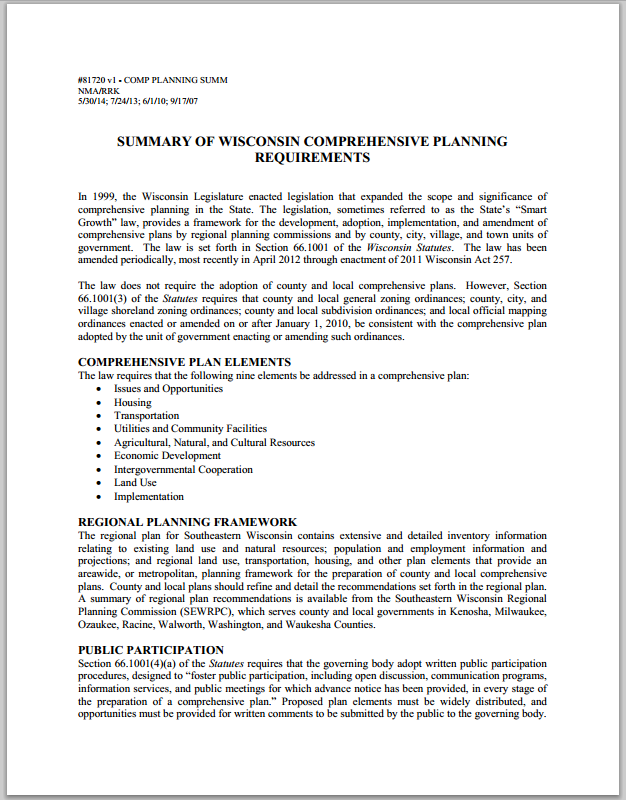In October 1999, the State of Wisconsin enacted the most ambitious land use legislation in a generation. Wisconsin’s Comprehensive Planning Legislation ensures that by 2010, every city, village, county and most towns in the state will be guided by a comprehensive plan as defined by state statute. The law came about in response to four major problems:
- As of 1998, only 29% of all Wisconsin communities had any kind of land use plan in place at all.
- These plans varied widely in their content, quality and age. Some communities had detailed plans covering a wide range of issues that were frequently updated. Other communities had poorly conceived or old plans.
- Even those communities with good plans often did not invest the time and resources to implement those plans when actual land use decisions were being made.
- The state offered little guidance on how to improve this situation.
The new law was passed to ensure responsible planning, create a framework such that the planning is implemented, rein in sprawl and enhance the health of our urban and rural communities.
1000 Friends of Wisconsin was a lead player in writing Wisconsin’s Comprehensive Planning Legislation and therefore hopes to provide citizens and policy makers throughout the state with the tools necessary to develop responsible land use plans. Throughout this section of our website, you will find information that will not only help you better understand the intent and letter of the law, but also how it can be implemented to rein in sprawl and contribute to healthy communities.
Wisconsin’s Comprehensive Planning Legislation creates an opportunity – in some ways unique in the nation and certainly historic in Wisconsin – to creatively combat sprawl and its harmful consequences for our environment and our quality of life. However, the opportunities created by this law will surely be squandered if we are not diligent and aggressive in our land use and transportation campaigns as Wisconsin citizens planning for the future of our communities.
There is a great deal at stake – we hope that as citizens we look at this law as an opportunity to plan for the healthy future of our homes and the long-term protection of our natural, cultural and economic resources – for ourselves, our families, and future generations.

